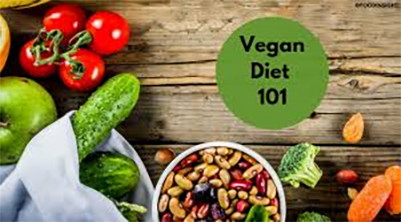Myth 1
A plant-based diet is insufficient in protein.
People believe that they must get their protein from animals or animal-derived foods like dairy and eggs to meet their daily protein requirement as plants do not have enough protein. Consider this: Where did cows, hens, and other animals get their protein from? Plants! Cow got enough protein from the grass to become a muscular 450 lbs, deliver a 50 lbs baby calf and give enough protein to its baby calf in the form of milk on daily basis. There is protein in every food made from plants.
The best way to consume protein is straight from the source. Even athletes with high protein requirements can easily meet their protein needs with a whole foods plant-based diet. Many world-class athletes are now eating entirely plant-based diets. Many of them believe that their performance has improved after switching to plant-based diets. Consider watching “The Gamechangers” documentary.
Studies have shown that intake of animal protein can increase the risk of certain cancers, heart disease, kidney disease, and bone disorder. There are multiple peer-reviewed research articles that clearly show whole foods plant-based protein food sources help reverse various chronic diseases.
Myth 2
A plant-based diet is deficient in calcium and leads to weak bones.
It’s believed that you need to consume dairy for stronger bones, but multiple studies on the consumption of dairy and osteoporosis (a disease in which the bones become weak) showed that post-menopausal women from countries that consumed higher amounts of dairy had an even higher rate of fractures suggesting that dairy actually leads to weak bones!.
It’s completely paradoxical to what we’ve always been taught about getting calcium or having strong bones from dairy consumption.
Plant-based diets provide an easy way to meet calcium requirements. Plant-based foods are rich in calcium. Green vegetables and seeds, in particular, can be excellent calcium sources. Moreover, 10-20 minutes of direct sunlight every day without any sunscreen will provide the vitamin D necessary for excellent bone health and multiple other essential bodily functions. For those who do not get enough sunlight, a vegan vitamin D supplement can help strengthen bones.
On the other hand, despite eating primarily animal products, more than 40% of Americans are vitamin D deficient. Vitamin D insufficiency can be detected with a simple blood test.
Additionally, regular exercise makes your bones denser and stronger decreasing the risk of osteoporosis.




I very delighted to find this internet site on bing, just what I was searching for as well saved to fav
تخضع تجهيزات مصنع إيليت بايب Elite Pipeلعمليات مراقبة جودة صارمة للتأكد من أنها تلبي متطلبات الأداء والمتانة الأكثر صرامة.
What i don’t understood is in reality how you’re now not really a lot more smartly-favored than you might be now. You’re very intelligent. You understand therefore significantly in terms of this topic, produced me personally believe it from a lot of numerous angles. Its like women and men are not interested except it is one thing to accomplish with Woman gaga! Your own stuffs outstanding. Always care for it up!
Our team was delighted to come across your article. The issue around myths of a plant-based diet has been forever prevalent in society. It’s reassuring to see professionals like yourself laying out facts and making the argument for the validity of a plant-based or vegan diet.
We also appreciate that you did not omit the fact that certain vitamins are difficult to obtain such as B12, but as you noted it’s still difficult to obtain at consistent levels even for those who eat animal products as well. As you mentioned, supplements are the one convenient method for obtaining adequate amounts of B12 if needed.
The bloating issue is really multi-faceted and could be the topic of an entire article of its own. It should be mentioned that the type of plant-based ingredients one eats, in which combinations, and whether or not it’s cooked, is the main contributing factor rather than the general consumption of plant material.
We look forward to reading more of your articles in the future!